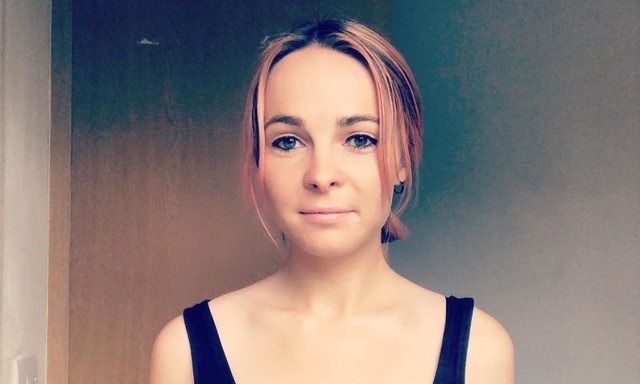Why We Should Celebrate Neurodiversity In Theatre
16.03.23
Giverny Masso is an arts journalist and the senior reporter at theatre newspaper The Stage. She is also a theatre maker, with her most recent project being a devised show as part of the Arcola Theatre’s Mental Health Company.
This post is the first in a series of articles on the subject of neurodiversity in the arts. The next will come from sound designer, performer and writer Adam Welsh, who set up his own agency for neurodivergent creatives and Ali Wilson on How Arts Organisations can be More Neurodivergent-Friendly.
What kind of people have the capacity to make great theatre? I would argue people with one or more of the following qualities: the ability to offer a unique perspective, sensitivity, dedication and, of course, creativity.
These are all characteristics that can be strongly associated with many of the different conditions that come under the umbrella term of neurodivergence. Yet these same traits have frequently been described using words such as "oversensitive" or "obsessive", depending on who is doing the labelling.
It is for this exact reason that autism advocate Siena Castellon founded Neurodiversity Celebration Week; to change the way that learning differences and traits associated with neurological diversity are viewed.
Neurodiversity refers to differences in brain function. Being neurodivergent means your brain works differently from the spectrum of what is considered "typical" in society, and the term can encompass people who have autistic-spectrum conditions, learning disabilities, Tourette’s, ADHD, personality disorders and more.
I learnt the term a few years ago. Identifying as neurodivergent completely remodelled my thinking around a long-term, often-stigmatised mental health diagnosis, helping me to embrace certain aspects of my personality that may be different to the "expected norm", and even harness these traits positively.
For example, I have found in my experience as an arts journalist that being highly sensitive might mean sometimes taking things to heart - such as setbacks on a piece of writing or criticism - much more than other people. But it also means being very empathetic, and therefore genuinely connecting with the people I talk to, and taking real care with my work. Enduring intense emotional mood swings in daily life can mean having to regularly pick myself up from crushing lows. But it can also translate to being extremely resilient and having the tools to take a fresh perspective after a knock back - such as a story falling through or a rejection. I can imagine these qualities could equally be strengths to an actor, or anyone working creatively, if channelled in the right way.
I once interviewed an actor and writer called Ric Renton for The Stage, who had created a piece of theatre about his struggles with addiction. He said: "I would encourage people who struggle with addiction to harness your obsession, it is one of the greatest fucking gifts you never knew you had". Indeed Renton channeled this "gift" into theatremaking. What he said made me think about how the very attributes that society can damn us for and that can get us into trouble can, on the flip side, be our superpowers when perceived and harnessed differently.
The theatre sector should be creating environments in which people can harness their superpowers and thrive creatively, rather than be forced to conform to systems and processes that were set up only with neurotypical people in mind. However the industry isn't there yet. There are still battles being fought in every corner to push for greater inclusivity and representation for all marginalised identities.
Some of the work that has been done so far to strive for greater access for neurodivergent theatremakers, which deserves to be celebrated, includes the launch of a talent agency exclusively for neurodivergent actors and creators, called Neurodivergent Talent. Set up by writer, director, sound designer and performer Adam Welsh (who we'll be hearing from in the next blog post in this series!), the agency boasts an impressive talent list, including writer and performer Scottee, and has already done groundbreaking work to get the access needs of neurodivergent artists considered from the beginning of an employment process.
In August 2021, Manchester-based organisation Every Brain launched a guide that provides practical ideas for how creative workplaces can better support people who are neurodivergent, while JJ Green and Beth Westbrook, who are both actors and writers, set up the Neurodivergent Creatives Network early last year to allow artists and creatives who identify as neurodivergent to share their work, promote opportunities and discuss issues they have experienced. More recently, creatives from East Anglia set up the new (fabulously named) performance collective Neurodelicious CIC, which will focus on developing work by performance artists with brain differences.
These are examples of just some of the organisations and individuals who have been the catalyst for major steps forward in the industry and have loudly and proudly championed neurodivergent artists. I hope as many other theatre organisations as possible decide to engage with them, learn from them and become equally willing not only to include, but to shout about, neurodivergent creatives. Because theatre should be paving the way for the change we want to see in wider society, and the most compelling work is made by people who see the world with a different perspective and can push the boundaries of convention.
Have you found your own neurodivergent superpowers have helped influence your work? Has working with neurodivergent colleagues given you a deeper insight into new creative processes? Giveny continues this theme as guest editor in our upcoming blog posts but if you have any experiences you'd like to share we'd love to hear from you.
If you'd like to keep up to date with all our blog posts, important and interesting stories in the worlds of theatre, arts and media, plus job ads and opportunities from our industry friends, sign up to our daily media briefing at this link.



